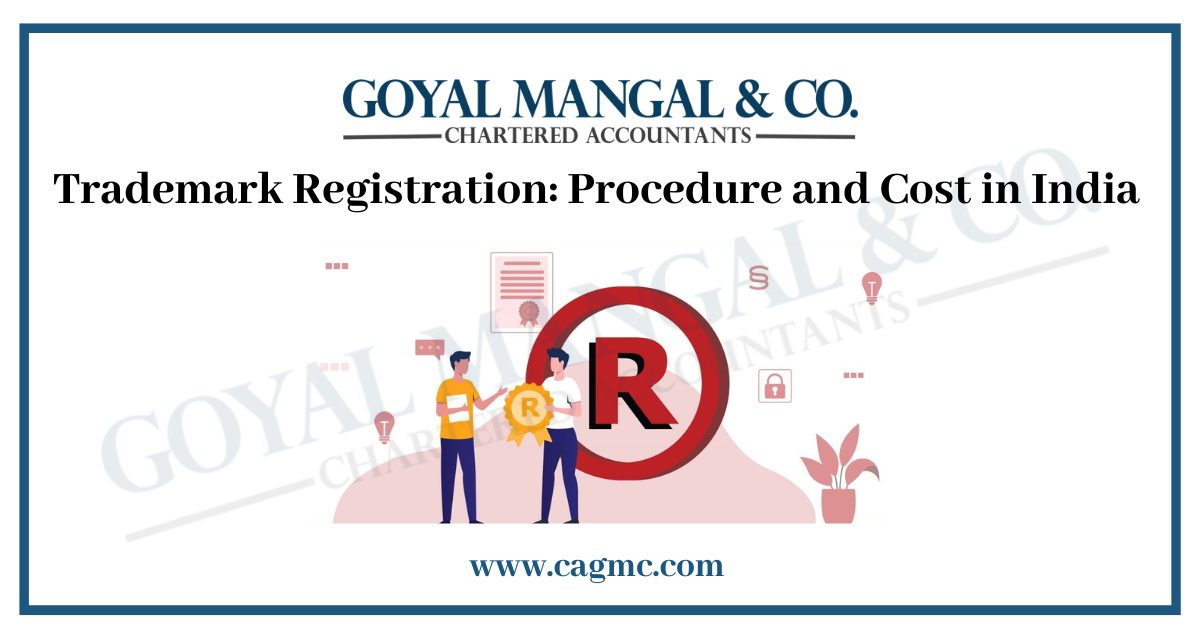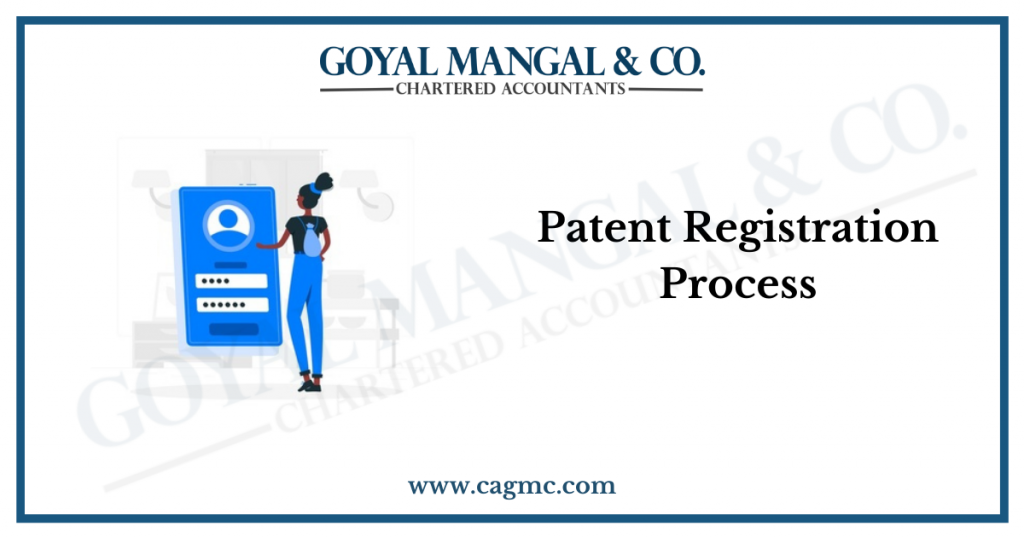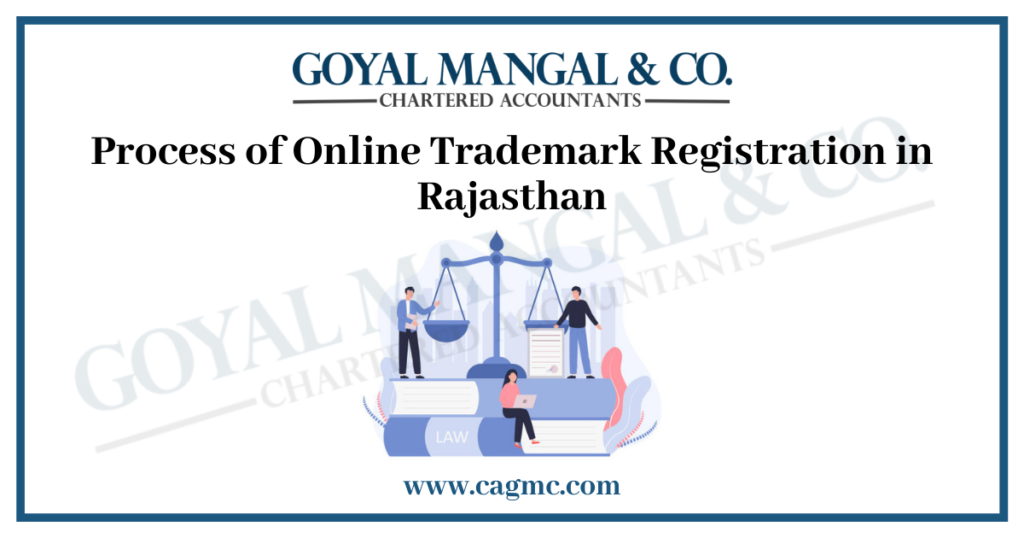 A Trademark is an identity of a company, service, or product. These marks are used to distinguish the business from others and are considered Intangible assets of the owner. Businessmen and Entrepreneurs use such marks to help their services stand out with Individuality and for the public to recognize their brand without any confusion with similarly available other products/services.
A Trademark is an identity of a company, service, or product. These marks are used to distinguish the business from others and are considered Intangible assets of the owner. Businessmen and Entrepreneurs use such marks to help their services stand out with Individuality and for the public to recognize their brand without any confusion with similarly available other products/services.
There is a specified procedure, provided by the Legislature, to have a Trademark registered which includes costs. This article mainly focuses on the Meaning of a Trademark and the procedure of its registration with the costs that are levied in the process of getting a Trademark registered.
|
Table of Content |
Key Abstract
Trading has become a social trend in today’s era, where service providers try to establish a market for what they offer while consumers try to enhance their life with the best services available in the market. This reason sometimes also influences the decision of the consumers towards using products of specific Brands. In such a situation, it becomes necessary for the brands to claim the originality of their products by securing a mark that helps their brands to be easily recognizable from others.
Registration of Trademarks provides legal security for Businessmen and service providers by engraving the identity of their brands by a legal procedure which helps them in maintaining a unique identity forever.
Meaning of Trademark
Trademarks are unique descriptions in form of symbols, expressions, words, signs, colors, series of marks, or a combination of either. Enterprises involved in commercial trading use marks to set up a brand with recognizable logos and symbols. After registration of Trademarks, the owners equip the following rights;
- Preventive Rights: Such Rights help the enterprises to protect their originality by claiming a legal status for their Brands,
- Legal Rights: These Rights become functional in case of infringement by allowing to take legal actions in case of theft of identity or any act by competitors that causes breach of rights of Trademark holders.
The sign or symbol owned by a legal entity (Individual or a business) operates as their Intellectual property. In simple terms, these marks help in general for the public to identify the originality of the products and conclude to which organization or brand they belong.
Importance of Trademark Registration
In the era of competitive businesses with ideas clashing with each other due to similarity, it becomes important to establish a unique identity of oneself. Talking about businesses, Marketing and Entrepreneurship currently are leading trends where each Individual or Company is trying to set a user interface by taking active participation in the trade of goods and services. In such a situation having a mark or symbol that significantly “Distinguishes the identity of the products from other products similarly available for the targeted group of users or public in general” helps in providing easy identification of the Brands.
How to get a Trademark Registered?
Trademark registration can be acquired for a logo, symbol, expression, and more in India. It exclusively provides the owner with several rights. However, the procedure for registration of a Trademark is a long process that involves the following steps;
Trademark Search: Before starting the process of registration, the Trademark professionals enquire if the prospected mark or identity is identical to a filing that is already registered with the certifying authority (Trademark Registry). This is the first step to make sure that the desired mark does not collapse with an existing one. Filing an application without confirming that no organization owns a similar or identical mark can potentially put the Application at risk of getting rejected.
Filing for Trademark: After completing the search, if the mark is available an application is filed in the prescribed format along with the fees mentioned for the registration. The Application for the registration of Trademark is filed to the Trademark Registrar which must include the following information;
- Logo or the desired mark,
- Name and Address of the owner of Trademark,
- Class of Trademark,
- Date since Trademark is used,
- Description of the Goods, Products, or Services
Allotment of Trademark Application Number: The Applicant receives a Trademark Application Allotment Number after the application is successfully filed with the Registrar. The owner of the Trademark after receiving the allotment number can affix the Trademark symbol next to the logo.
Vienna Classification (Scanning): The Vienna Classification is an international codification of the figurative elements of marks that are established by the Vienna Agreement, 1973. This codification is applied to the Trademark.
After the allocation of an allotment number, the status of the Trademark application shows the status as “Sent for Vienna Codification”. This reflects that the work is still in process as just the allotment of a Trademark Application Number does not secure the completion of the process of registration.
Based on the figurative elements of marks the “Vienna Classification” will be applied to the Trademark by the Trademark Registrar after the application is filed.
Examination of Trademark: The Trademark registration process includes the examination of the application by a Trademark Officer once the Vienna Codification is completed. The Trademark officer after reviewing the application will accept or object to the application and will report it.
When the Trademark officer accepts the trademark registration application, they allow it for Trademark Journal publication. And when the Trademark officer objects to the trademark registration application they convey a ‘Show cause notice’ to the applicant and address the objections.
If the Applicant fails to satisfy the Trademark Officer with the justifications, the application gets rejected after which the trademark applicant can appeal against the decision of the Trademark Officer before the Intellectual Property Appellate Board (IPAR).
Publication of Trademark in Journal
When the Trademark Registrar accepts the trademark registration, they forward the prospected Trademark to get published in the Trademark Journal. All the Trademarks that the Trademark Registrar accepts are published in these weekly journals.
The purpose of publishing the proposed trademarks is to provide the public an opportunity to object to them. If there are no objections filed then the mark gets registered within a time span of 12 weeks (After waiting for objection within 90 days of publication).
If further receives an objection, a hearing will be scheduled by the Trademark officer for the Applicant and Opposing party to provide justification for the rejection or registration of the Trademark.
Registration of Trademark
If the Trademark registration application does not face any objection or opposition after the completion of all the above-mentioned stages, it gets entitled to receive;
- Trademark Manuscript and
- Trademark Certificate
The ® symbol can be placed next to the logo or Trademark, once the trademark registration certificate is issued. The placement of this symbol and issuance of the Trademark certificate reflect the exclusive rights of the owner to use the Trademark.
Categorization of Fees
The cost levied on the Enterprises in the process of Trademark registration is categorized in the following manner;
Government Fees– The government levied cost is the same across the country which further only differs depending on class and category of legal entities which are listed as follows:
- For Companies – The listed cost of trademark registration fees by the government for Companies is 9000/- Rupees per application per class,
- For Individuals– Whereas the trademark registration fees by the government for Individuals cost around 4500/- Rupees per application per class
Professional Fees– To receive a Registration certificate of Trademark, Professionals are hired by the concerned entities to eliminate of possibility for errors. It also helps in receiving influencing guidance to successfully claim a mark because of their expertise in the matter. However, the fees depend on the individuals concerned.
Cost of Trademark Registration
The Trademark Registration process includes numerous formalities by which costs will be imposed. Some of those formal impositions are as follows;
Registration Cost- The user has to pay charges to acquire a Trademark. These charges will be based on Marks, Series of Marks, and Associated Marks which will be charged for each separate class. The charges are separately calculated if the Trademark is prospected to be further registered in convention countries, which are comparatively high. The basic calculation of the cost of registration of a Trademark can be understood as follows;
Single mark (Single Class) – When an application is filed for the registration of a mark under any specific category of goods or services, they are registered as a single mark. It costs Rs.2500/- for a single mark in a single class with Rs.2500/- for each additional class.
Multi-class Mark (Collective Class) – When the application is filed with the purpose of securing a Trademark under more than one class of specified products or services, they are categorized as Multiclass or Collective marks which cost Rs.10000/-.
Registration in Convention Country- Trademarks operate as Intellectual Property of the owner when it is registered. To secure the Trademark from any kind of theft of identity sometimes owners choose to file an application for registration in more than one jurisdiction. Such applications cost Rs.10000/-. Registration in each additional class is calculated separately.
International Registration- The Madrid system secures the International Registration of Trademarks. This system operates in the governance of two individual treaties:
- The Madrid Agreement
- The Madrid Protocol
The Madrid Agreement and Protocol are administered by The International Bureau of the World Intellectual Property Organization (WIPO) which charges separate fees to register the mark in each member country of WIPO.
Professional Fees- Several times the applications get rejected because of filing for marks that are already in existence. In such situations, Professionals are hired to review the registration of a Trademark for avoiding any conflicting situations. However, the fees of professionals may vary according to the individuals
Renewal Charges- Only registration of a trademark does not validate its permanent ownership. Costs for renewal of each mark in each class is Rs.5000/- while the renewal of a Collective/Multi-class mark costs Rs.10000/-.
Alteration in Trademark- It costs Rs.3000/- when a Trademark owner opts for the removal of a Trademark or its rectification.
After Registration- After the registration of the Trademark, the cost within six months of registration will be Rs.5000/- for the first mark with Rs.1000/- for every additional mark. After six but within twelve months the cost will be Rs.7500/- for the first mark and Rs.1500/- for every additional mark. Whereas, after twelve months of acquisition it will cost Rs.10000/- for the first mark and Rs.2000/- for every additional mark.
Cost of Digital Signature Certificate (DSC) – A Digital Signature Certificate (DSC) is an electronic counterpart of physical/paper certificates that are issued by licensed Certifying Authorities (CA). When a Trademark registration application is filed online, obtaining a Class 3 Digital Signature Certificate system is mandatory.
These rules are made mandatory in compliance with the e-filing provisions mentioned under The Information Technology Act, 2000. Any Individual, Agent, or Attorney must obtain a Class 3 DSC before they proceed with the registration of a Trademark to clarify its authenticity.
The cost of a DSC varies as per the entities that issue the Digital Signature Certificate as the charges differ in accordance with each authority. However, the registration cost per application is around 4000/- Rupees which is based on classes and categories. In case a person registers its brand or logo under more than one category then the charges will be 4000/- Rupees per additional category.
Final Words
Registration of Trademarks secures the identity of a business in the long run. The quality of the goods or products made available by brands will definitely ensure the integrity of their business and the trust of the public but the competitors and identical brand can still potentially divide their fame until they are well represented under a name, mark, or logo. The Registration of Trademarks provides protection to the individuality of businesses and helps in making them become noticeable organizations.


